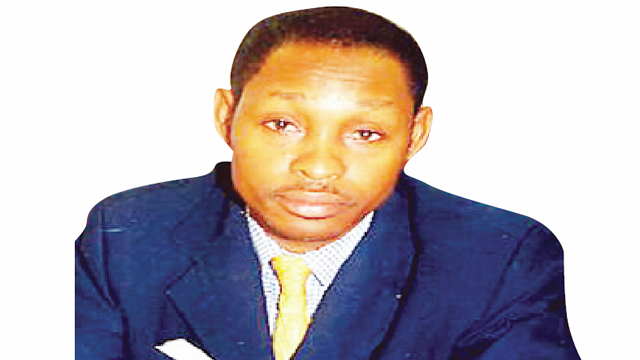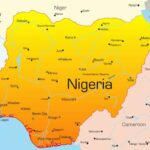
The 2023 federal budget, coming at a time of constrained fiscal space and when all the macroeconomic indicators are headed south provides an opportunity for greater value for money in the allocation and management of available resources. This discourse reviews a few spending heads in the proposals and calls for re-ordering of priorities with a view to tackle national priorities and deliver greater value for money.
At the State House headquarters, there is a vote of N7.2billion for annual routine maintenance of mechanical/electrical installations of the Villa and another N132million for rehabilitation and repairs of residential buildings and phased replacement of vehicles and spares at N1.9bn. This is an annual ritual and one wonders what happens to these buildings from year to year justifying the vote of the sums of money on a yearly basis. Again, provisions have been made for vehicles on a yearly basis raising the question of the actual need for these vehicles. Furthermore, there is a vote for the presidential air fleet in excess of N8bn.
The National Agricultural Land Development Authority is an agency under the presidency and outside of the Ministry of Agriculture. However, all its activities are simply a replication of what falls within the mandate of the Ministry of Agriculture. The capital vote for the Authority is about N2bn which is proposed for supply of farm inputs including wheat, maize, cassava and palm seedlings. Others are for land acquisition, land clearance, land preparation, purchase of tractors, etc. All the projects are in “some selected states” and “across the country” without specificity in their location. These votes have been the norm over the last 20 years and more. The central poser is; how much does NALDA remit to the treasury? What does the government get in return for its investment in land, seeds, tractors, etc? If these votes are converted to equity in a public private partnership farming scheme, government may be getting dividends in billions every year.
The River Basin Development Authorities are receiving in excess of N30bn in this year’s proposal. Each of the River Basins has thousands of hectares of land, tractors, seeds, seedlings, fertilisers, equipment, etc., purchased at the public expense and have been receiving huge allocations over the years. It should be possible to demand that these authorities make meaningful contributions to the treasury through investment of resources at their disposal. Does it make sense to continue pouring water into a basket? The federal government should move ahead and establish public private partnerships that will factorise the land, equipment and machinery of these Authorities as equity for farming ventures and get dividends on a yearly basis for their investment.
The Ministry of Agriculture and Rural Development presents an interesting case study. Year after year, the same kind of provision is made and at the end of the year, there are no clear deliverables. There is a vote for the provision and installation of solar-powered streetlights in rural communities in the 6 geo-political zones at N849.877million; construction of feeder roads in rural communities in the 6 geo-political zones costing N2.613bn. Where are these projects located? This kind of vote provides opportunities for massive corruption considering that budget monitors cannot just wake up and start going across the federation in search of projects without location. Another vote in the sum of N14.809bn is for multilateral/bilateral tied loans – rural access and agricultural marketing project. The RAAMP project has been ongoing for so many years. Can Nigerians get an account of what has been achieved with the loans and the counterpart funding from the budget? The usual value chain provisions are made but they are all hanging and have no clear deliverables. If they had deliverables, the ministry should give an account of what it has achieved over the years with humungous votes which have been spent in a job for the boys approach.
In their usual tradition and despite public outcry, National Assembly Management has a bulk vote of N169bn without details. The mere fact that an agency is on statutory transfer cannot be a justification for a huge vote without details. NASS and indeed all the agencies enjoying statutory transfers should provide a breakdown of their budget proposals to Nigerians. With a huge vote of N1.248trillion for the Ministry of Defence, Nigerians can ask and insist on value for money to end all terrorism and insurgency and restore the security of Nigerians so that economic activities can pick up again. There is a vote in excess of N2.4bn to facilitate Muslims and Christians going on pilgrimage, a private religious affair, at the public expense.
The proposal of the Ministry of Works and Housing appears to be a joke. It has total capital vote of N288.477bn and roads and bridges in excess of hundreds sharing this peanut. The same federal government in the last couple of days approved the repairs of the Enugu-Onitsha expressway by MTN at the cost of N202bn under the Tax Credit Scheme. This will take care of the outstanding work of about 91 kilometres. Is it not possible to start a scheme of prioritization for federal roads instead of wasting available resources, spreading them so thin with no results achieved at the end of the year? One or two major roads per geopolitical zone selected and finished within a space of two years would have made more meaning that the current wasteful trajectory.
In the final analysis, we cannot continue to repeat the mistakes of yesterday in the way we allocate and manage available resources, especially during a period of lean resources and expect to solve our national challenges. The fact that the bulk of the money we are spending will be borrowed even makes the spending pattern more problematic. The ninth National Assembly has the opportunity to rejig the federal budget and the ball is in their court.





